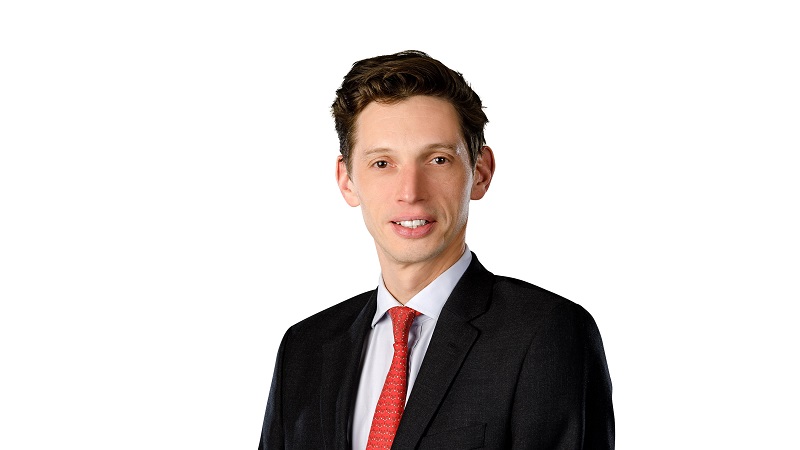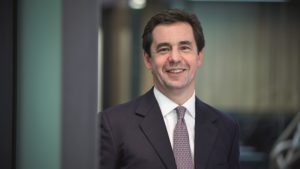These are complicated times to be an asset allocator: there are thorny decisions on whether to embrace value as the recovery trade builds momentum; or exercise caution in the face of slow vaccine rollouts and new variants. Should they respond to market panic over inflation or wait until it emerges? Plus, income is scarce, ‘defensiveness’ is expensive. There is a lot to balance.
JM Finn investment director Freddy Colquhoun is all-too aware of these competing forces. On balance, he is optimistic about the recovery, believing the vaccines will ultimately enable the global economy to find its feet. “We believe the cyclical recovery will strengthen through the year,” he says.
However, he also recognises that with the recovery comes the potential for inflation. This also has to be factored into the group’s positioning. “All of this stimulus and support from governments and central banks raises the prospect of inflation,” he says. “It is becoming a key risk and we need to be cautious on our positioning to ensure we don’t get knocked by a rise in interest rates.”
Nuanced approach
This argues for a non-binary approach to asset allocation. Alasdair Pike, senior investment manager at the group, says its policy is to “spread risk across asset classes and to keep it under constant review. Markets are reflecting an economic recovery, but it is on a knife-edge and there is a lot going on under the bonnet”.
That said, he believes the rotation to value is well-supported. This is leading JM Finn to be more optimistic on areas such as the unloved UK, which has been a place to avoid for much of the past four years.
“The UK could be a shining beacon. We’ve drawn a line in the sand on Brexit and there is good progress on the vaccine. That bodes well,” says Colquhoun.
This is in notable contrast to the expensive US market. The strength of the US has tended to benefit passive multi-asset managers tracking global benchmarks, but Colquhoun believes this may change in the years ahead, favouring a more nuanced and selective approach. Income remains a problem for many clients.
“Income has been a very tricky place to invest and not just because of the pandemic, though Covid has made it worse,” says Colquhoun. “The days of being able to pick up 4-5% income from ‘safe’ bonds are gone and, if anything, fixed-income looks rather higher risk and provides little yield.”
There are limitations to other income options as well: infrastructure is a natural alternative, for example, but Colquhoun points out that a lot of money has been driven towards the sector and that makes him wary. The same is true for other popular areas such as logistics, warehousing or renewables.
“We break down alternatives into commodities, absolute return, property and infrastructure. Many alternative assets will offer CPI plus a specific return – the type investors would normally look for from fixed income, but the key is not to have too much in one area.”
The reality, he says, is that the best source of income may be closer to home: equities offer capital growth and income attributes and are reasonable value, depending on the market. That said, more recently the team has also tried to steer investors towards a total return approach.
“Income tax rates are higher than capital gains tax rates. We’ve had a conversation with many clients saying that investing for income is tricky, pointing out that dividends won’t be going back to the levels of a few years ago for some time,” he adds.
If inflation picks up, this total return approach may become even more important. This more complex environment should favour JM Finn’s bespoke approach. It looks to partner with like-minded IFA firms rather than trying to be all things to all clients.
“We want a long-term relationship with our clients and we tailor services to their requirements. We want a two-way dialogue with adviser firms,” says Colquhoun.
Partnership model
The group grew out of a stockbroking business and now has over £10bn in assets under management. Since 2011, it has been majority-owned by listed Belgian banking group Delen Private Bank, with the remainder held by staff. The group has more than 30 investment directors across the business.
According to Colquhoun, firms will use them in different ways. “Some use us for everything. Others will use us for high net-worth clients, or for IHT planning portfolios,” he says. “Some will use us alongside passives such as Vanguard Life strategies. We have a traditional set-up across bonds, equities, alternatives and have now developed ESG options.”
The group is clear it is not providing a product but a partnership model. With this in mind, it offers a range of options for advisers to access their services. It has a model portfolio service, a tailored platform solution, plus multi-asset portfolios and discretionary fund management. They are also comfortable if the adviser wants to manage the asset allocation themselves.
Colquhoun says: “Often they will give us a headline asset allocation with the split of fixed income, equities, alternatives and cash. We’ll build portfolios around that allocation. It’s a case of listening to what the IFA wants – do they want active or passive? A core and satellite approach? Do they have a cost target? If there’s an income criteria, we’ll need to know. We want to know their rebalancing policy and we’ll also need to know the tax position.
“We build portfolios that meet these investment objectives with a rigorous and disciplined process.”
They can blend in passive allocations as needed. According to Pike, it will usually be 60/40 and 70/30 in favour of passives. The group will usually have discretion on where they go active or passive. There aren’t a lot of surprises here.
Pike says: “It’s well-known that it is difficult to find active managers that outperform the S&P 500. The majority of our active exposure will be in inefficient markets such as emerging markets and smaller companies where it’s easy to pick mispriced securities.”
They may also use passive funds temporarily if they can’t find an active fund but want exposure to the market. Where they go active, they want to be truly active and generally avoid benchmark-driven funds.
Colquhoun believes one of the best things to come out of the burgeoning passive industry is that it has forced the active sector to take a look at itself and improve performance.
The group tends to favour performance-driven boutiques, including RWC for emerging markets, Prusik for Asia and Lindsell Train for the UK and Japan. In general, they are long-term holders of funds, but will seek to tilt the portfolio where there are clear bargains.
“We can introduce a fund switch whenever we want, but we try and hold onto fund managers for three years. We will do a bit of tactical positioning when we think it’s the right thing,” says Colquhoun.
Today, they have a slight value tilt, believing the economic situation and relative valuations support the reflation trade. However, they are keeping a balance across all their portfolios, recognising that the situation is fragile and could turn quickly should a third wave take hold or the vaccine rollout stall.
It may be a rather thankless time to be an asset allocator, but it should favour a thoughtful approach.
This article is taken from the April 2021 issue of Portfolio Adviser. Read more here.







